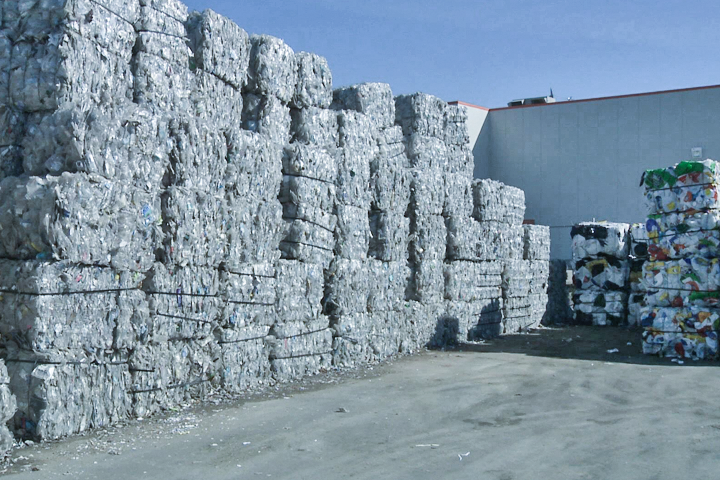Moose Jaw will soon be the latest Saskatchewan municipality to no longer accept plastic bags or plastic clamshell containers in its recycling program, due to a worldwide decline in acceptance of the materials.
Loraas Disposal Services Ltd. — which operates Moose Jaw’s single-stream recycling program — made the decision in May to no longer accept those two particular plastics from its Moose Jaw customers, explained sales manager Scott Nelson. This decision does not solely affect this municipality; the company recently made a similar choice in Assiniboia.
The company’s Saskatoon operations no longer accepts plastic bags or clamshell food containers, while its centre in Regina never accepted plastic bags to begin with, he continued. Other recycling companies in Canada and North America have made similar decisions.
“With plastic bags, we were one of the last ones in the province to accept them,” Nelson added, adding these two types of plastics are the most difficult to recycle.
City hall is aware of this decision and met with its Loraas representative in June to discuss the change, said Darrin Stephanson, municipal operations manager. The waste management company is expected to provide an updated contract with the changes included.
Once the paperwork arrives, city administration will bring it to city council for discussion. Council could formally announce the changes to residents in September. Until that time, however, residents can still put those two types of plastics into their recycling bins since Loraas is stockpiling them.
“That’s the sign of the times,” Stephanson said about the exclusion of the plastics.
He pointed out the federal government intends to ban plastic bags in the future, while other Canadian municipalities have already done so. There has also been upheaval in the global recycling industry during the last two years, especially in China, which has stopped taking plastics from North America.
“I’m not surprised (the ban is) coming,” he added.
Plastic containers numbered one through seven are still being recycled, but it is difficult to get them to the proper markets, Nelson said. However, there is no market anymore for plastic bags or clamshell food containers. The company to which Loraas hauls its material is now refusing to accept those plastics.
“There’s not much we can do,” he continued, not until the market starts accepting plastic bags again. However, the recycling industry is in a poor position, especially since China shut the door on accepting North American recycling. This has created an oversupply of plastics everywhere.
If retailers continue to use plastic bags and they can’t recycle them, then the bags will eventually become landfill items, noted Stephanson.
While there is still a market in North America for recycling certain plastics, the problem is companies have to pay to haul their materials to those places, Nelson said. Saskatchewan’s issue is finding enough transportation to deliver it to those markets.
The United States is the largest market to accept materials for recycling, but with its oversupply of recyclable plastics, it’s difficult to truck Canadian plastics there.
“The industry isn’t looking good for the near future. Hopefully something will change. But really, it’s going to be a wholesale change coming in the industry,” Nelson said.
This means consumers will have to reduce their demand for plastics and plastic packaging, he added. Once this happens, manufacturers will hopefully start eliminating plastic packaging as well.
The recycling industry is run by private companies, so municipalities don’t have much control over it, said Stephanson. He expects the upheaval in the global industry to continue for the next couple of years. However, he hopes the situation resolves itself so municipalities can have clarity about where recycling is going and whether recycling programs will continue to progress into the future.




